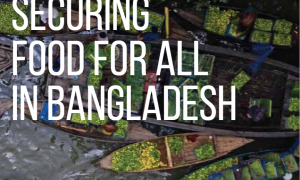Seasonal variation in maternal dietary diversity is reduced by small-scale irrigation practices: A longitudinal study
Some agricultural practices, such as irrigation, have the potential to buffer seasonal dietary gaps and through increased production and consumption improve diets, particularly of the rural poor relying on subsistence farming but also for rural an

